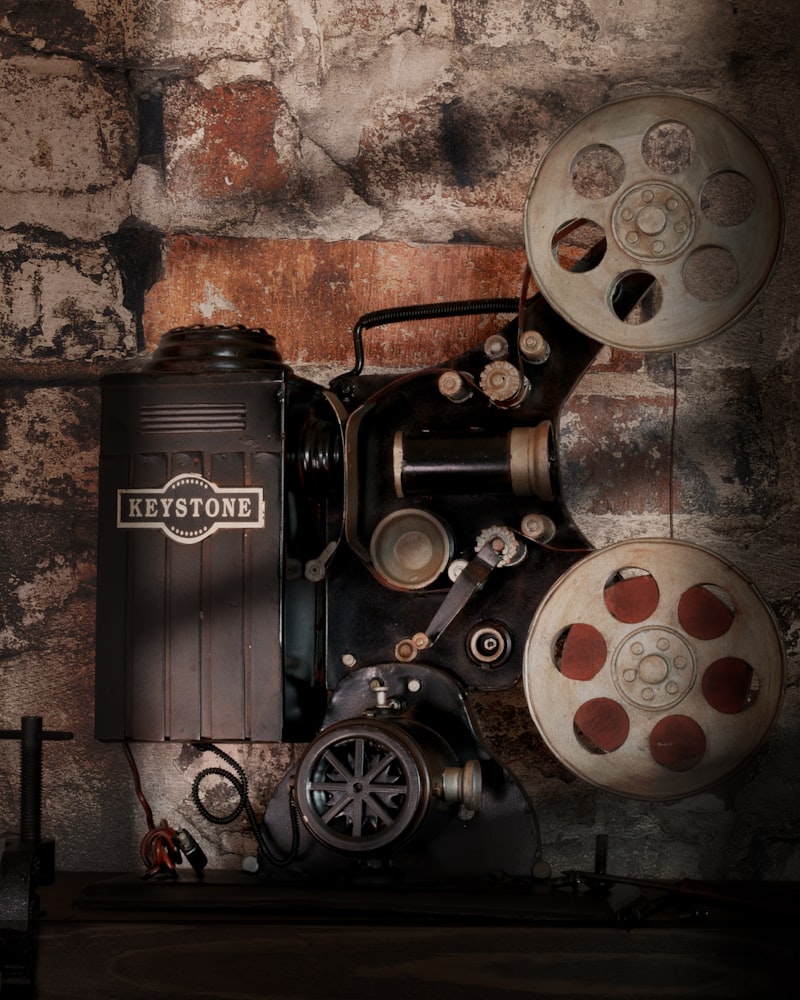If you’re a fan of mind-bending adventures and futuristic landscapes, classic sci-fi novels offer a treasure trove of timeless stories that captivate readers across generations. These novels aren’t just about space travel and advanced technology; they delve deep into human nature, societal issues, and the boundless possibilities of the universe.
One of the standout classics is “Dune” by Frank Herbert, a masterpiece that blends politics, religion, and ecology on the desert planet of Arrakis. Herbert’s intricate world-building and compelling characters make it a must-read for any sci-fi enthusiast looking to explore complex themes.
For those intrigued by dystopian futures, George Orwell’s “1984” remains eerily relevant with its portrayal of a totalitarian regime that controls every aspect of life. Orwell’s chilling vision of surveillance and thought control continues to provoke discussion about the power dynamics in society.
If you prefer a philosophical journey through time and space, Isaac Asimov’s “Foundation” series offers a sweeping narrative that spans centuries, focusing on the rise and fall of civilizations in a galaxy-wide empire. Asimov’s exploration of psychohistory and human destiny makes it a cornerstone of sci-fi literature.
On a lighter note, Douglas Adams’ “The Hitchhiker’s Guide to the Galaxy” injects humor into the genre with its whimsical tale of an ordinary human, Arthur Dent, who finds himself adventuring through space after Earth’s destruction. Adams’ witty satire and absurd scenarios redefine what sci-fi comedy can achieve.
Lastly, Ursula K. Le Guin’s “The Left Hand of Darkness” challenges conventions with its exploration of gender and identity on a planet where inhabitants can change genders. Le Guin’s thought-provoking narrative invites readers to contemplate cultural norms and the fluidity of human nature.
Timeless Voyages: 10 Must-Read Classic Sci-Fi Novels That Defined the Genre
Dive into the eerie world of Victor Frankenstein and his creation, a novel that pioneered the science fiction genre with its exploration of life, death, and the consequences of playing god.
Orwell’s dystopian masterpiece paints a chilling picture of a totalitarian society where individuality is crushed, and truth is a malleable concept. It remains a haunting warning about the dangers of surveillance and authoritarianism.
Huxley’s vision of a future society where happiness is enforced through genetic engineering and mind control challenges our understanding of freedom and identity, making it a cornerstone of dystopian literature.
In Herbert’s epic saga set on the desert planet of Arrakis, political intrigue, ecological themes, and complex characters converge in a narrative that spans millennia, captivating readers with its richly detailed universe.
Wells’ classic tale of Martian invaders laying waste to Earth remains a seminal work of alien invasion fiction, exploring themes of imperialism and humanity’s vulnerability in the face of advanced technology.
This cyberpunk novel introduced readers to the matrix, a virtual reality where hackers battle for control, influencing pop culture and inspiring a generation of writers and filmmakers exploring the implications of a hyper-connected world.


Asimov’s series chronicles the rise and fall of civilizations across galaxies, blending history, politics, and science into a compelling narrative that explores the cyclical nature of human progress and societal collapse.
Bradbury’s cautionary tale depicts a future where books are banned, and firemen burn them to maintain social order. It challenges readers to confront the consequences of censorship and the power of literature to inspire change.
Le Guin’s exploration of gender and society on the planet Gethen, where inhabitants can change gender at will, challenges conventional ideas of identity and relationships, offering a thought-provoking examination of human nature.

Lem’s philosophical novel delves into the mysteries of an alien ocean that manifests the deepest desires and fears of the scientists studying it, questioning the limits of human understanding and the nature of consciousness itself.
From Dystopia to Space Odyssey: Essential Sci-Fi Reads for Every Bookshelf
Imagine standing at the crossroads of humanity’s future, where the boundaries of technology, society, and the human spirit are tested and redefined. This is the essence of dystopian literature, where authors paint vivid, often unsettling pictures of societies gone awry. George Orwell’s “1984” stands tall in this genre, a chilling portrayal of a totalitarian regime where individuality is suppressed and truth is a manipulated commodity. Orwell’s mastery lies not only in crafting a cautionary tale but in stirring reflection on the nature of power and control.
Moving beyond earthly confines, sci-fi takes us on exhilarating journeys across the cosmos. Arthur C. Clarke’s “2001: A Space Odyssey” beckons readers into the mysteries of space and artificial intelligence, where humanity encounters enigmatic monoliths and questions its place in the universe. Clarke’s prose is as expansive as the universe he portrays, inviting readers to ponder profound questions about evolution, consciousness, and the possibilities awaiting us among the stars.
In the realm of speculative fiction, Ursula K. Le Guin’s “The Left Hand of Darkness” challenges conventional notions of gender and identity against a backdrop of an alien world. Le Guin’s exploration of a society where gender is fluid and love transcends physical form is both ahead of its time and timeless in its relevance, offering readers a mirror to reflect on our own perceptions and prejudices.
For those seeking a blend of adventure and philosophical inquiry, Frank Herbert’s “Dune” unfolds a saga of political intrigue and ecological complexity on the desert planet of Arrakis. As readers navigate the intricacies of power struggles and the destiny of civilizations, Herbert weaves together themes of religion, ecology, and the human psyche into a tapestry that captivates the imagination.
Exploring Other Worlds: Classic Sci-Fi Novels That Shaped Modern Imagination
Have you ever wondered about the worlds beyond our own? Dive into the realms of classic science fiction novels that have profoundly influenced our modern imagination. These timeless tales transport us to distant galaxies, alternate realities, and futuristic societies, igniting a sense of wonder and curiosity about what lies beyond our known universe.
Journey with authors like Isaac Asimov, whose “Foundation” series delves into the complexities of human civilization across millennia. Asimov’s intricate plots and visionary ideas about psychohistory and the fate of empires continue to captivate readers, posing timeless questions about the course of human destiny.
Venture into the mind of Philip K. Dick through “Do Androids Dream of Electric Sheep?” This novel, which inspired the iconic film “Blade Runner,” explores themes of artificial intelligence, empathy, and the essence of humanity in a dystopian future. Dick’s ability to blend philosophical inquiry with gripping storytelling challenges readers to reflect on the nature of consciousness and identity.
Experience the groundbreaking work of Arthur C. Clarke in “2001: A Space Odyssey.” Clarke’s collaboration with Stanley Kubrick produced a masterpiece that redefined cinematic and literary science fiction. The novel’s exploration of extraterrestrial intelligence and the evolution of human consciousness remains a cornerstone of speculative fiction, pushing the boundaries of what it means to be human in the face of the unknown.
In each of these works, readers encounter not only imaginative worlds but also profound insights into human nature, technology, and the cosmos. Through vivid prose and visionary concepts, these classic sci-fi novels continue to inspire generations, encouraging us to dream beyond the confines of our reality and contemplate the limitless possibilities of the universe.
Dive into these literary masterpieces and embark on a journey that challenges your perceptions, sparks your imagination, and leaves you pondering the mysteries of existence. Discover why these timeless classics remain essential reading for anyone fascinated by the intersection of science, philosophy, and the boundless expanse of the cosmos.
Journey Through Time and Space: 10 Iconic Sci-Fi Novels Every Reader Should Discover
-
“Dune” by Frank Herbert: Immerse yourself in the desert planet of Arrakis, where political intrigue and mystical powers collide in a battle for control of the most valuable substance in the galaxy.
-
“1984” by George Orwell: Step into a totalitarian world where Big Brother watches your every move, questioning reality and the nature of freedom itself.
-
“Neuromancer” by William Gibson: Explore the gritty world of cyberspace hacking and corporate espionage, where humans and machines blur the lines of identity and consciousness.
-
“Brave New World” by Aldous Huxley: Enter a society where genetic engineering and social conditioning have created a seemingly perfect, but deeply disturbing, utopia.
-
“The Hitchhiker’s Guide to the Galaxy” by Douglas Adams: Embark on a whimsical journey through space with Arthur Dent and Ford Prefect, encountering bizarre aliens, improbable adventures, and the ultimate answer to life, the universe, and everything.
-
“Foundation” by Isaac Asimov: Witness the rise and fall of civilizations across the galaxy as Hari Seldon’s psychohistory predicts the future and strives to guide humanity through millennia of chaos.
-
“Snow Crash” by Neal Stephenson: Dive into a hyperkinetic future where virtual reality, ancient Sumerian mythology, and corporate warfare collide in a high-octane thrill ride.
-
“The Left Hand of Darkness” by Ursula K. Le Guin: Explore themes of gender, identity, and cultural difference on the icy planet of Gethen, where an envoy navigates political intrigue and personal transformation.
-
“Hyperion” by Dan Simmons: Join seven pilgrims on a journey to the distant world of Hyperion, each sharing their tale of loss, redemption, and the enigmatic Shrike.

“Ender’s Game” by Orson Scott Card: Witness the training of child prodigy Ender Wiggin as he prepares to defend humanity against an alien threat in a gripping tale of strategy, sacrifice, and the consequences of war.
Frequently Asked Questions
How do classic sci-fi novels influence modern literature?
Discover how classic sci-fi novels shape modern literature by exploring their themes, characters, and futuristic visions. Learn how these pioneering works inspire contemporary authors and influence storytelling techniques in today’s literary landscape.
Why should I read classic sci-fi novels?
Discover timeless themes and futuristic ideas in classic sci-fi novels that influence modern culture and technology. Gain insights into human nature, societal trends, and speculative science, expanding your imagination and critical thinking.
Where can I find recommendations for classic sci-fi novels?
Find curated recommendations for classic sci-fi novels from trusted literary sources and specialized book review websites.
What are some must-read classic sci-fi novels?
Explore timeless science fiction classics that have shaped the genre with visionary tales of the future, technology, and humanity. Discover works like ‘Dune’ by Frank Herbert, ‘1984’ by George Orwell, and ‘Neuromancer’ by William Gibson among others, offering profound insights into speculative futures and innovative ideas.
Which classic sci-fi novels have had the biggest cultural impact?
Explore the classic sci-fi novels that have left a lasting cultural impact. Discover timeless works such as ‘Dune’ by Frank Herbert, ‘1984’ by George Orwell, ‘Neuromancer’ by William Gibson, and ‘Brave New World’ by Aldous Huxley.


